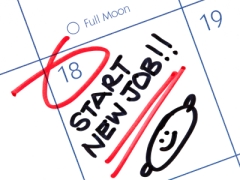 So you’re looking for a particular type of job. You’ve scoured every newspaper and signed up for all the jobsites, and recruitment agencies that you can find. You’ve applied for every vacancy going or there are no jobs to be found and you are out of options. What else can you do? Apply speculatively.
So you’re looking for a particular type of job. You’ve scoured every newspaper and signed up for all the jobsites, and recruitment agencies that you can find. You’ve applied for every vacancy going or there are no jobs to be found and you are out of options. What else can you do? Apply speculatively.
Applying speculatively means sending your application when an organisation is not advertising a job. I probably get asked more questions about this job search tactic than any other! After all you don’t have a job description or a set of guidelines to follow so it can be scary to the uninitiated. So here are my top tips…
Do all organisations accept speculative applications?
No. Some will only accept applications when they are actively advertising a job, this is especially true of public sector organisations such as the NHS, universities and local councils.
For small companies and particular sectors speculative applications are the norm. Always check organisations’ websites so you know where you stand before you apply.
Where can I get a list of organisations to apply to?
Sadly these lists are not pre-made so you have to generate them yourself. Decide the parameters of your job search – the role you want, type of organisation and geographic area. Start narrow and try to generate a manageable list first, then broaden it out if you exhaust your options.
- The ‘typical employers’ section of Prospects profiles are useful for finding out what type of organisations recruit for certain roles. Consider whether small and medium sized companies are likely to be an option as well as large employers and whether this appeals to you.
- If the companies you are interested in will need to promote themselves to clients where will they do this? Yellow pages is great for searching for a type of company in a particular town, but also consider if there are specific websites or directories that you should check.
- Are the organisations you are interested in likely to belong to/be accredited by a professional body? Professions like law, accountancy, engineering and architecture are regulated by professional bodies which often will make a list of members available on their website. Sometimes this list is password protected and only accessible to members, but it is often possible to join very cheaply as a student or unwaged member.
- Check to see if the Careers Service has done the work for you. Our sector pages include recommended links, the north west pages sometimes include lists of employers that we have compiled (these are not exhaustive but can give you a place to begin).
So I have my list of target organisations- now what do I do?
In a word: research.
Look at the organisation’s website, not only the ‘working for us’ and ‘about us’ sections but also the client-facing pages. Consider: what do they do, what is important to them, who are their clients, who are their competitors? Also research the industry more widely, search local and national press for relevant stories, read industry-specific journals (often available on reference at the Careers Service or in local libraries), look at their competitors’ websites.
 Next think: how do I match the interests and priorities of the organisation, what have I got to offer that will be relevant? The more you know, the more targeted you will be able to make your application – and targeting is the key to success.
Next think: how do I match the interests and priorities of the organisation, what have I got to offer that will be relevant? The more you know, the more targeted you will be able to make your application – and targeting is the key to success.
So, now can I apply?
Not just yet. Before you take the plunge think about networking. Networking can help you so much with your research, so you understand what the organisation is looking for, whether they are likely to have opportunities coming up and who you should send a speculative application to. It is also a way to make a great first impression, so that the intended recipient of your speculative application already knows you, which means they are more likely to read your application and look positively on it than if you just sent it without preparing the way.
What should a speculative application consist of?
In most cases a targeted CV and covering letter.
How many speculative applications should I make?
As many as you can do well. It is better to make 5 strong targeted applications than 50 identical ones.
Can I get some help?
Of course! Whether it is compiling a list of organisations, checking an application before you send it or talking over what to say when networking contact the Information team at the Careers Service by phone (0161 275 2829) or email.
Filed under: Advice, Applications & Interviews, Job hunting | 1 Comment »
 This is the final post on the Manchester Graduate Careers Blog (sniff).
This is the final post on the Manchester Graduate Careers Blog (sniff).









